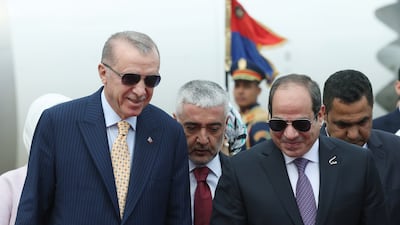Erdoğan’s Warning Forces Netanyahu to Skip Sharm El-Sheikh Summit

GOOBKOOG NEWS|ANKARA / SHARM EL-SHEIKH / JERUSALEM — Turkish President Recep Tayyip Erdoğan told U.S. and Egyptian hosts he would not tolerate Israeli Prime Minister Benjamin Netanyahu’s presence at a high-profile summit in Sharm el-Sheikh, prompting a last-minute reversal by Netanyahu and a diplomatic scramble ahead of the meeting.
Mr Erdoğan’s objections, conveyed to Washington and Cairo, made clear he and Ankara would refuse to share the summit platform with Mr Netanyahu. Turkish officials warned the prospect of Mr Netanyahu landing on Egyptian soil would be politically explosive for Muslim-majority participants, and some reports said Erdoğan threatened to turn his plane around if Netanyahu were allowed to attend. The pushback contributed to Netanyahu’s decision not to make the trip, with his office citing a Jewish holiday as the reason for the withdrawal.
The summit in Sharm el-Sheikh — convened by Egyptian President Abdel Fattah al-Sisi and U.S. President Donald Trump — is billed as a regional effort to consolidate the ceasefire and map out the next steps for Gaza after weeks and months of war. Leaders from across the region and the West were expected to discuss stabilisation, humanitarian access and longer-term arrangements for Gaza’s reconstruction and security architecture. The meeting’s diplomatic tightrope was always delicate: Israel and Hamas were not original invitees to the summit’s public sessions, while Palestinian Authority leaders and Arab states were; a late invitation to Israel’s premier by the U.S. set off the controversy.
The summit comes on the heels of an extraordinary day in Jerusalem. President Trump addressed the Knesset, lauding what he called a “historic dawn of a new Middle East” after the partial ceasefire and the phased release of Israeli hostages. Trump used the visit to praise Israel’s leadership and urged regional actors, including Iran, to abandon support for terrorism and move toward normalisation. During the Knesset speech, Mr Trump also publicly appealed to Israel’s president to consider pardoning Mr Netanyahu, who faces corruption charges at home — remarks that underscore how deeply U.S. involvement has become interwoven with Israel’s domestic politics.
Mr Netanyahu, who earlier expressed warm public gratitude toward Mr Trump for brokering aspects of the deal and for U.S. pressure on Hamas, nevertheless told aides he would not attend the Sharm el-Sheikh summit. Israeli officials framed the withdrawal as a scheduling and religious-holiday issue. Domestically, the optics of Netanyahu standing alongside Arab leaders — and effectively before audiences that see him as personally accountable for the Gaza conflict — would have been politically sensitive both inside Israel and across the Muslim world.
Analysts say Erdoğan’s move achieved two goals at once. It signalled Ankara’s continuing role as a vocal critic of Israel’s Gaza policy and protected Turkey’s standing with Arab and Muslim publics who remain deeply alienated by the war’s human toll. At the same time it complicated Washington’s attempt to stage a broad regional moment of reconciliation led in part by Mr Trump and Egypt. For Egypt and the United States, the priority is to lock in the fragile first-phase arrangements on hostages, prisoner releases and a ceasefire, but the split over Netanyahu’s attendance underscores how fragile the politics around any post-conflict roadmap will be.
What to watch next: whether the Sharm el-Sheikh meeting produces concrete, verifiable steps on humanitarian corridors and reconstruction funding; whether follow-up talks can bring Israel, the Palestinian Authority and Hamas into a durable negotiating framework; and whether the diplomatic fallout from the Netanyahu invitation reshapes Turkey’s relationships with Egypt and the U.S. for the longer term.